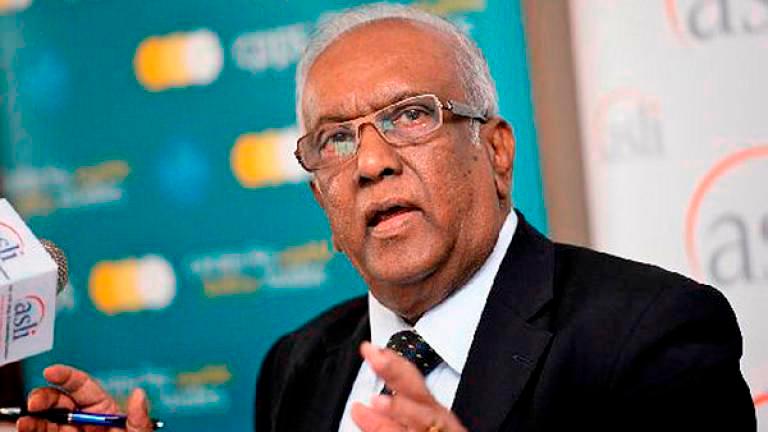PETALING JAYA: While the government may have its heart in the right place by giving out monetary aid and subsidies to the people to overcome their financial difficulties, two former senior civil servants say structural changes to the economy are required.
Earlier yesterday, Finance Minister Tengku Zafrul Abdul Aziz said the government is expected to spend RM77.3 billion for consumption subsidies in 2022, the highest amount in Malaysian history.
Zafrul said among others, the projected consumption subsidies covered petrol, diesel, liquefied petroleum gas (RM37.3 billion), cooking oil (RM4 billion), flour and electricity.
Former transport ministry secretary-general Tan Sri Ramon Navaratnam told theSun: “You can’t subsidise more than you can afford. There is no point in providing short-term solutions for long-term problems. These ‘solutions’ should be economically viable and not politically based.
“We are dealing with a sluggish economy and we are not imposing structural changes.
“The problem is the lack of balance in supply and demand, which has yet to be properly discussed.
“You cannot solve these issues by dishing out subsidies. Without fixing the main structure, how do we expect things to get better?” said Ramon, who is think tank Asli Centre for Public Policy chairman.
“Ministers agreeing to pay cuts isn’t going to have a huge impact on our already sluggish economy. Instead, there should be a complete review of what works for our economy and what does not.
“The government should also reconsider the approved permits we hand out so we are aware of what industries or sectors they involve. You cannot adopt superficial measures for structural problems. It won’t work.”
Ramon also agreed with Parti Keadilan Rakyat’s Rafizi Ramli, who had earlier urged the government to form a national stockpile and restructure various ministries in response to the rising cost of living and multiple food shortage crises.
In a statement, Rafizi said the stockpile policy is a tried and proven method used by multiple countries since the 1970s and helps solve national food security and cost of living issues.
Ramon added that there should be more focus on providing courses in agriculture and work to make it a worthy profession, similar to other jobs.
“Our system has a lot of contradictions. On one hand, we are handling a food crisis and on the other, we are not focusing on the sectors that can help us overcome these issues.
“We truly need to start looking into the present and focus on bettering not just the economy but also the education system in our country. Paying attention to these restructures will offer a glimmer of hope that we may recover,” he said.
Former treasury secretary-general Tan Sri Mohd Sheriff Kassim said while subsidies were always popular, they can cause countries to go insolvent, like what happened to Egypt, Greece and Sri Lanka, where there was a rush on the banks as panic spread.
“People will lose all their life savings, and housewives will have to rush to markets to buy groceries and the government will need to appeal for international assistance.”














